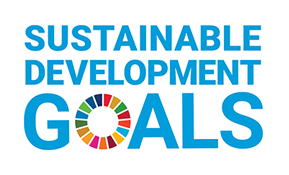At a GlanceReport 1—Just Transition to a Low-Carbon Economy
Why we did this audit
- This audit is important because for Canada to meet its greenhouse gas emission reduction targets, it must transition its resource and energy sectors to a low-carbon economy. The transition in these sectors will affect workers and communities across the country that are directly and indirectly supported by these industries. The government has committed to leaving no Canadian behind in this transition.
- Workers in vulnerable sectors will be affected by the global transition to a low-carbon economy—along with their families, their communities, and the businesses that contribute to the industry. The equitable provision of social safety nets and opportunities to participate in the low-carbon economy are important for a just transition. Establishing a clear and coordinated approach to support affected citizens and communities during the transition can help to avoid economic disruption and personal hardship.
Our findings
- The federal government was not prepared to support a just transition to a low-carbon economy.
- Federal programs and benefits fell short of a just transition for coal workers.
- Federal commitments and supports for the coal transition addressed some of the recommendations of the Task Force on Just Transition for Canadian Coal Power Workers and Communities. We found that Employment and Social Development Canada and the regional development agencies used existing mechanisms to support affected workers and communities, but fell short of a just transition. We also found that the gender-based analysis plus undertaken for the coal-transition programs did not reflect the diversity of the workers.
Key facts and figures
- In November 2016, the federal government announced that it would be amending its existing coal-fired electricity regulations to accelerate the phase-out of traditional coal-fired electricity in Canada by 2030.
- This transition will affect workers and communities in every province and shift the labour market away from traditional sectors and toward other opportunities. Sectors that are most affected include oil and gas extraction, emission-intensive manufacturing, mining and quarrying, and transportation equipment manufacturing, along with supporting activities.
- Under Budget 2019, Natural Resources Canada was mandated to lead the reporting on results of the activities implemented to support a just transition for the affected workers and communities. However, we found that this had not been done.
Our recommendations
- To enable a coordinated approach to planning and implementing a just transition for Canadians, Natural Resources Canada, with the support of Employment and Social Development Canada, should formalize a governance structure to ensure that all relevant federal departments and agencies have clear roles, responsibilities, and accountabilities for advancing the federal support for a just transition to a low-carbon economy.
- Natural Resources Canada, the Atlantic Canada Opportunities Agency, and Prairies Economic Development Canada, with the support of Employment and Social Development Canada, should work together to measure, monitor, and report on just-transition outcomes. This would include
- establishing indicators and determining data requirements to measure and monitor the long-term effects of the coal phase-out on affected workers and communities
- tracking progress against indicators that align with the Canadian Indicator Framework for the Sustainable Development Goals and reflect the diversity of directly and indirectly affected workers and communities
- establishing results to be achieved for workers and communities that support a just transition to a low-carbon economy
- establishing a reporting schedule to publicly report on the outcomes of the just-transition programs




Only the Atlantic Canada Opportunities Agency and Prairies Economic Development Canada had linked the contribution of the coal-transition programs to Goal 12 (Responsible Production and Consumption) of the United Nations’ 2030 Agenda for Sustainable Development Goals in their departmental sustainable development strategy reports for 2020 to 2023. In our view, although there were no federal targets, the indicators under Goal 8 (Decent Work and Economic Growth) and Goal 10 (Reduced Inequalities) could contribute to a better understanding of the outcomes of a just transition to a low-carbon economy.
Visit our Sustainable Development page to learn more about sustainable development and the Office of the Auditor General of CanadaOAG.
Related information
| Entities | |
|---|---|
| Completion date | 11 March 2022 |
| Tabling date | 26 April 2022 |
| Related audits |
|